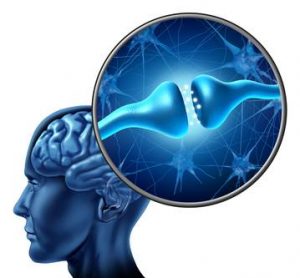
Dreams can trigger off many thoughts.
Are you struggling to get a good night’s sleep?
Understanding the importance of quality sleep and its impact on every aspect of life, I will discuss common sleep issues such as insomnia, nightmares, sleepwalking, and restless leg syndrome and how hypnotherapy can help.
By combining hypnotherapy, NLP, and EFT techniques, I will show you how to rewire your mind, transform limiting beliefs, and tap away sleep disruptions for optimal rest.
Learn more about my customised sleep program and how it can help you restore your sleep and, ultimately, your life.
Introduction: My Approach to Improving Sleep
As a hypnotherapist based in the UK, I am dedicated to enhancing individuals’ sleep quality through a holistic approach that integrates Hypnotherapy, Neuro-Linguistic Programming (NLP), and Emotional Freedom Techniques (EFT).
Each of these modalities plays a unique role in addressing the root causes of sleep disturbances.
Hypnotherapy utilises deep relaxation and suggestive techniques to rewire the subconscious mind’s beliefs about sleep, promoting restful nights.
NLP helps individuals understand their thought patterns and behaviours related to sleep, making them effortlessly make positive changes.
EFT involves tapping on meridian points to release emotional tension, hindering peaceful sleep. These techniques create a powerful synergy that can transform sleep quality and overall well-being when used together.
Understanding the Importance of Quality Sleep
Quality sleep is vital to overall well-being, contributing to better cognitive function, emotional health, and physical vitality. Improving sleep quality and duration is essential for maintaining optimal health and performance.
When individuals prioritise quality sleep, they awaken feeling refreshed and alert, ready to tackle daily challenges. Adequate rest enhances memory consolidation and learning and boosts creativity and problem-solving skills. Getting sufficient sleep is crucial for regulating emotions and reducing stress levels, fostering resilience in adversity.
Furthermore, quality sleep is linked to improved immunity, metabolism, and overall physical health. During deep sleep, the body undergoes repair and restoration, aiding in muscle recovery, hormone balance, and cellular rejuvenation.
Common Sleep Issues and How Hypnotherapy Can Help
Sleep issues such as insomnia, nightmares, sleepwalking, and restless leg syndrome can significantly impact one’s well-being and daily functioning. Hypnotherapy, NLP, and EFT effectively address these sleep disturbances and promote relaxation.
Insomnia, characterised by difficulty falling or staying asleep, can lead to fatigue and mood disturbances. Nightmares, vivid and disturbing dreams, can disrupt sleep cycles and cause anxiety. Sleepwalking, a parasomnia involving sleep activities, can pose safety risks. Restless leg syndrome, causing uncomfortable sensations in the legs, can result in sleep disruptions.
Individuals can learn to relax the mind and body by utilising techniques like hypnotherapy, which improves sleep quality. NLP focuses on changing thought patterns and behaviours to improve sleep habits. EFT helps manage stress and anxiety, which are often underlying factors contributing to sleep issues.
Insomnia
Insomnia, characterised by difficulty falling or staying asleep, is a common sleep disorder that can profoundly affect daily life.
Hypnotherapy has shown promising results in treating insomnia by addressing underlying psychological factors and promoting relaxation.
People experiencing insomnia often struggle with fatigue, irritability, and difficulty concentrating due to the lack of restorative sleep. This can impact their work performance, relationships, and overall well-being.
Hypnotherapy, a form of therapy that utilises relaxation techniques and focused attention to access the subconscious mind, can help individuals break the cycle of sleeplessness by reducing anxiety, improving sleep habits, and resolving deep-rooted issues that contribute to insomnia. By guiding individuals into deep relaxation, hypnotherapy can enhance their ability to fall asleep naturally and achieve a restful night’s sleep.
Nightmares
Nightmares, distressing dreams that evoke fear or anxiety, can disrupt sleep and affect mental well-being. Techniques like EFT and Hypnotherapy offer effective approaches to reducing nightmare frequency and promoting peaceful sleep.
Individuals experiencing frequent nightmares often struggle with persistent sleep disturbances and emotional distress, impacting their overall quality of life. Sleep disruptions caused by nightmares can lead to fatigue, irritability, and difficulty concentrating during the day, affecting work and social interactions.
The emotional toll of recurring nightmares can contribute to increased stress levels and a heightened sense of anxiety.
- By incorporating techniques such as EFT and Hypnotherapy into their routine, individuals can develop coping mechanisms to address the root causes of their nightmares and alleviate the associated symptoms.
- EFT helps individuals manage their emotional responses by tapping on specific acupressure points. At the same time, Hypnotherapy enables individuals to explore and reframe subconscious patterns contributing to the nightmares.
Sleepwalking
Sleepwalking, a parasomnia involving complex movements during sleep, can pose safety risks and disrupt restful sleep.
During a sleepwalking episode, an individual may engage in activities like walking, talking, eating, or even driving while unaware of their actions. These behaviours can lead to accidents, injuries, or dangerous situations due to impaired judgement and awareness.
NLP techniques focus on reprogramming the subconscious mind to alter behavioural patterns and responses during sleep. At the same time, Hypnotherapy aims to address deep-rooted issues that may trigger sleepwalking episodes. By enhancing self-awareness, reducing stress, and promoting relaxation, these therapeutic interventions can help manage and minimise the occurrence of sleepwalking, ultimately improving overall sleep quality.
Restless Leg Syndrome
Restless Leg Syndrome, characterised by uncomfortable sensations in the legs and an irresistible urge to move them, can disrupt sleep and lead to daytime fatigue. EFT and Hypnotherapy techniques can help alleviate the symptoms of Restless Leg Syndrome and improve sleep quality.
The discomfort and urge to move the legs experienced with Restless Leg Syndrome often worsen in the evening or at night, making it challenging for individuals to fall asleep and stay asleep. This constant need to move the legs can disrupt the sleep cycle, leading to fragmented sleep and decreased sleep quality.
In severe cases, the condition can significantly impact one’s quality of life, causing extreme fatigue, irritability, and difficulty concentrating during the day.
Hypnotherapy: Rewiring Your Mind for Better Sleep
Hypnotherapy offers a powerful method for rewiring the mind and creating positive sleep associations that foster better sleep quality.
By looking into the subconscious mind, hypnotherapy can identify and modify the negative thought patterns and beliefs that contribute to insomnia, allowing individuals to overcome these barriers to restful sleep.
Through relaxation techniques and guided imagery, hypnotherapy helps individuals reach a deep state of relaxation conducive to improved sleep.
The process enables individuals to take control of their sleep habits and cultivate a positive mindset towards sleep, ultimately leading to sustained, restorative rest each night.
NLP: Transforming Limiting Beliefs Around Sleep
Neuro-Linguistic Programming (NLP) offers a unique approach to transforming limiting beliefs and behavioural patterns that may impact sleep quality. By utilising NLP techniques, individuals can reframe their thoughts and emotions related to sleep, leading to positive changes in their sleep experience.
NLP delves into the intricate connections between the mind, language, and behaviour, allowing individuals to identify and adjust deep-rooted limiting beliefs surrounding sleep. Through visualisations, anchoring, and reframing, NLP enables individuals to break free from negative thought cycles that disrupt sleep.
By deciphering the language patterns and mental processes influencing sleep behaviour, NLP assists in cultivating a more adaptive mindset towards bedtime routines and rest. This transformation paves the way for improved sleep habits, enhanced relaxation, and a rejuvenated approach to nighttime rest.
EFT: Tapping Away Sleep Disruptions
Emotional Freedom Techniques (EFT), commonly known as tapping, offer a gentle yet effective method for reducing stress, anxiety, and emotional disturbances contributing to sleep disruptions. By incorporating EFT practices into a bedtime routine, individuals can enhance relaxation and promote restful sleep.
EFT tapping works by stimulating meridian points on the body while focusing on specific thoughts and emotions, helping to release blocked energy and restore balance. This process can lead to decreased cortisol levels, the stress hormone, and increased production of endorphins, promoting a sense of calmness and well-being.
As a result, individuals may find relief from racing thoughts and emotional turmoil that often hinder falling asleep or maintaining restful slumber.
The accessibility and simplicity of EFT make it a convenient tool for managing daily stressors and emotional challenges. Whether facing work-related pressures, relationship issues, or general anxiety, incorporating EFT tapping sessions can provide a valuable outlet for processing emotions and promoting mental clarity.
Combining Hypnotherapy, NLP, and EFT for Optimal Sleep
Integrating the synergistic approaches of Hypnotherapy, NLP, and EFT can create a comprehensive strategy for achieving optimal sleep. By combining the strengths of each technique, individuals can address multiple facets of sleep issues and enhance overall sleep quality.
Through Hypnotherapy, individuals can tap into the power of their subconscious mind to reframe negative thought patterns that may be contributing to insomnia or restless sleep.
On the other hand, NLP techniques offer practical tools for changing behaviour and thought processes that affect sleep, such as managing stress or anxiety.
Additionally, EFT can help release emotional blockages that interfere with restful sleep, providing a holistic approach that targets psychological and emotional factors.
When these modalities work together in harmony, they form a dynamic approach that addresses the symptoms of sleep disturbances and promotes long-lasting improvements in sleep quality.
The Components of My Customised Sleep Programme
My customised sleep programme incorporates personalised sessions of Hypnotherapy, Neuro-Linguistic Programming (NLP), and Emotional Freedom Techniques (EFT), supplemented by comprehensive sleep hygiene education. This programme aims to optimise sleep quality and duration by tailoring each component to individual needs.
Upon looking into the components of this tailored sleep regimen, individuals experience the profound effects of Hypnotherapy, which taps into the subconscious mind to promote relaxation and alleviate sleep-related anxieties.
Integrating Neuro-Linguistic Programming (NLP) further enhances the programme by addressing thought patterns and behaviours that impact sleep, fostering positive changes at a subconscious level.
Emotional Freedom Techniques (EFT) are incorporated alongside these therapeutic elements to release emotional blockages and tensions that may hinder restful sleep. Participants are guided through practical exercises that combine acupressure points with cognitive restructuring, aiming to reduce stress levels and promote a sense of tranquillity before bedtime.
Initial Assessment
An initial assessment forms the foundation of the customised sleep programme, allowing for a comprehensive evaluation of individual sleep patterns, emotional triggers, and cognitive processes.
By integrating techniques such as Hypnotherapy, NLP, EFT, and talking therapy, practitioners can delve deeper into the complexities of sleep disturbances. Understanding the root causes and underlying issues becomes pivotal in tailoring interventions that target the specific needs of each individual. By utilising these various modalities, a holistic approach is embraced, addressing the symptoms and the psychological factors influencing sleep quality.
This multifaceted strategy fosters a more profound understanding of the patient’s unique challenges. It enables the development of a nuanced plan for sustainable improvement.
Setting Clear Objectives
Setting clear objectives is crucial in guiding the progress of the customised sleep programme, outlining specific goals related to improving sleep quality, reducing stress, and enhancing relaxation.
When individuals establish clear objectives for their sleep programme, they provide a roadmap for success. These objectives serve as targets that enable a structured approach towards achieving positive changes in sleep patterns. By incorporating techniques such as Hypnotherapy, NLP, and EFT into the programme design, individuals can benefit from tailored interventions that address their unique needs and challenges.
These therapeutic modalities help address specific sleep-related issues and contribute to overall well-being by promoting relaxation, reducing stress, and enhancing mental clarity.
Personalised Hypnotherapy Sessions
Personalised Hypnotherapy sessions form a cornerstone of the sleep programme, tailored to address individual sleep challenges, emotional triggers, and cognitive restructuring needs. These sessions aim to reframe negative sleep patterns and promote restful sleep through therapeutic approaches and talking therapy.
By looking into the subconscious mind, Hypnotherapy sessions create a safe space for clients to explore deep-rooted fears, anxieties, and traumas that may be hindering their ability to relax and sleep peacefully. Individuals can confront and change their negative thought patterns through guided relaxation techniques and suggestive therapy, leading to a more peaceful and rejuvenating sleep experience.
NLP Techniques for Cognitive Restructuring
Utilising NLP techniques for cognitive restructuring is instrumental in reshaping negative thought patterns and behaviours that hinder sleep quality. By applying NLP strategies tailored to sleep improvement, individuals can transform limiting beliefs and enhance their mental processes for better sleep outcomes.
By applying NLP techniques, individuals can use reframing exercises to identify and challenge unhelpful thoughts contributing to sleep disturbances. Using visualisation, anchoring, and language patterns, NLP enables individuals to create a positive mindset conducive to relaxation and restful sleep.
NLP aids in breaking the cycle of rumination and worry that often plagues sleepless nights, offering coping mechanisms and strategies to calm the mind and promote a sense of peace before bedtime. By rewiring thought processes and introducing positive self-talk, NLP cultivates a supportive internal dialogue that facilitates the transition to a restful sleep state.
EFT Practices for Stress Reduction
Embracing EFT practices for stress reduction can significantly impact sleep quality by alleviating emotional distress and promoting relaxation.
By incorporating EFT techniques such as tapping and affirmations into daily routines, individuals can effectively address underlying emotional issues that may disrupt their sleep patterns. This holistic approach to stress reduction helps manage immediate stressors and enhances overall emotional resilience.
The practice of EFT before bedtime can aid in relaxation, calming the mind, and preparing the body for a restful night’s sleep. The emotional release facilitated by EFT can create a sense of inner peace and contentment, contributing to a deeper and more rejuvenating sleep experience.

Dream your reality!
Sleep Hygiene Education
Educating individuals on sleep hygiene practices forms an essential component of the customised sleep programme, focusing on optimising sleep quality and duration through healthy sleep habits. By imparting knowledge on sleep hygiene, individuals can establish a supportive environment for restful sleep.
Key practices under the umbrella of sleep hygiene education include maintaining a consistent sleep schedule, creating a relaxing bedtime routine, and ensuring a comfortable sleep environment.
Minimising screen exposure before bedtime, managing stress levels, and avoiding stimulants like caffeine close to bedtime are crucial aspects of sleep hygiene education.
Ongoing Support and Monitoring
Providing ongoing support and monitoring throughout the sleep programme ensures that individuals receive continuous guidance, encouragement, and adjustments as needed. With a focus on integrating Hypnotherapy, NLP, and EFT principles, ongoing support is crucial in sustaining positive sleep outcomes.
Regular check-ins and follow-ups are essential components of this support system. Through consistent monitoring and feedback, practitioners can tailor the programme to each individual’s needs and progress. Professionals can offer personalised strategies and interventions for improved sleep patterns by utilising Hypnotherapy, NLP, and EFT techniques.
The continuous engagement fosters accountability and motivation, enhancing the effectiveness of the overall sleep programme. Ongoing support is a cornerstone in achieving and maintaining restful sleep.
Conclusion: Restoring Your Sleep, Restoring Your Life
The journey towards restoring your sleep is also a journey towards revitalising your life. By embracing the transformative power of Hypnotherapy, NLP, and EFT, individuals can reclaim restful nights, improved well-being, and renewed vitality.
Through the therapeutic techniques employed in these practices, individuals are guided to tap into the subconscious mind, unearthing deep-seated patterns that may be disrupting their sleep.
- With Hypnotherapy, suggestion is used to promote relaxation and reframe negative thought patterns related to sleep.
- NLP techniques help individuals reprogramme their behaviours and beliefs around sleep, fostering a positive and healthy sleep environment.
- EFT releases emotional blockages that may hinder restful sleep, allowing for a more peaceful and rejuvenating night’s rest.

A journey of discovery
Frequently Asked Questions
How can Hypnotherapy help me sleep better and longer?
Hypnotherapy is a powerful tool that helps you enter a deeply relaxed state, allowing your subconscious mind to be more receptive to positive suggestions and changes. By using hypnotherapy techniques, we can reprogram your mind to let go of any negative thoughts or habits that may be interfering with your sleep and replace them with more beneficial beliefs and behaviours.
What is NLP, and how does it contribute to improving sleep?
NLP stands for Neuro-Linguistic Programming, a technique focusing on how the mind and language interact to influence behaviour. With NLP, we can identify and change any negative patterns or self-talk that may keep you from getting a good night’s rest. We can help you achieve a more peaceful and restful sleep by reprogramming your language and thought patterns.
Can EFT help with sleep issues?
Yes, EFT (Emotional Freedom Technique) can effectively improve sleep. EFT works by tapping specific acupressure points while verbalising your thoughts and feelings. It can help release any emotional blocks or stressors causing sleep disturbances. Using EFT, we can address the root causes of your sleep issues and help you find relief.
How many sessions will I need to see results?
The number of sessions needed varies for each individual, as everyone’s journey and progress are unique. Some may see results after just a few sessions, while others may need more time and support to achieve their desired results. As a hypnotherapist, I will work closely with you to develop a personalised treatment plan and regularly evaluate your progress to ensure you are getting the best results.
Does hypnotherapy, NLP, and EFT have any side effects?
No, these techniques have no known side effects. They are safe and non-invasive methods that work with your subconscious mind to promote positive changes and improve your overall well-being. However, if you have any concerns, please do not hesitate to discuss them with me, and I will address them accordingly.
Is hypnotherapy, NLP, and EFT suitable for everyone?
Yes, these techniques are suitable for most people. However, suppose you have a history of serious mental health conditions or are currently taking medication for a mental health issue. In that case, it is essential to consult with your healthcare provider before starting any therapy. It is also essential to disclose relevant information to your hypnotherapist to ensure your safety and well-being during the sessions.




